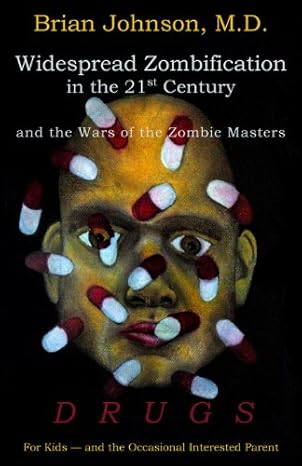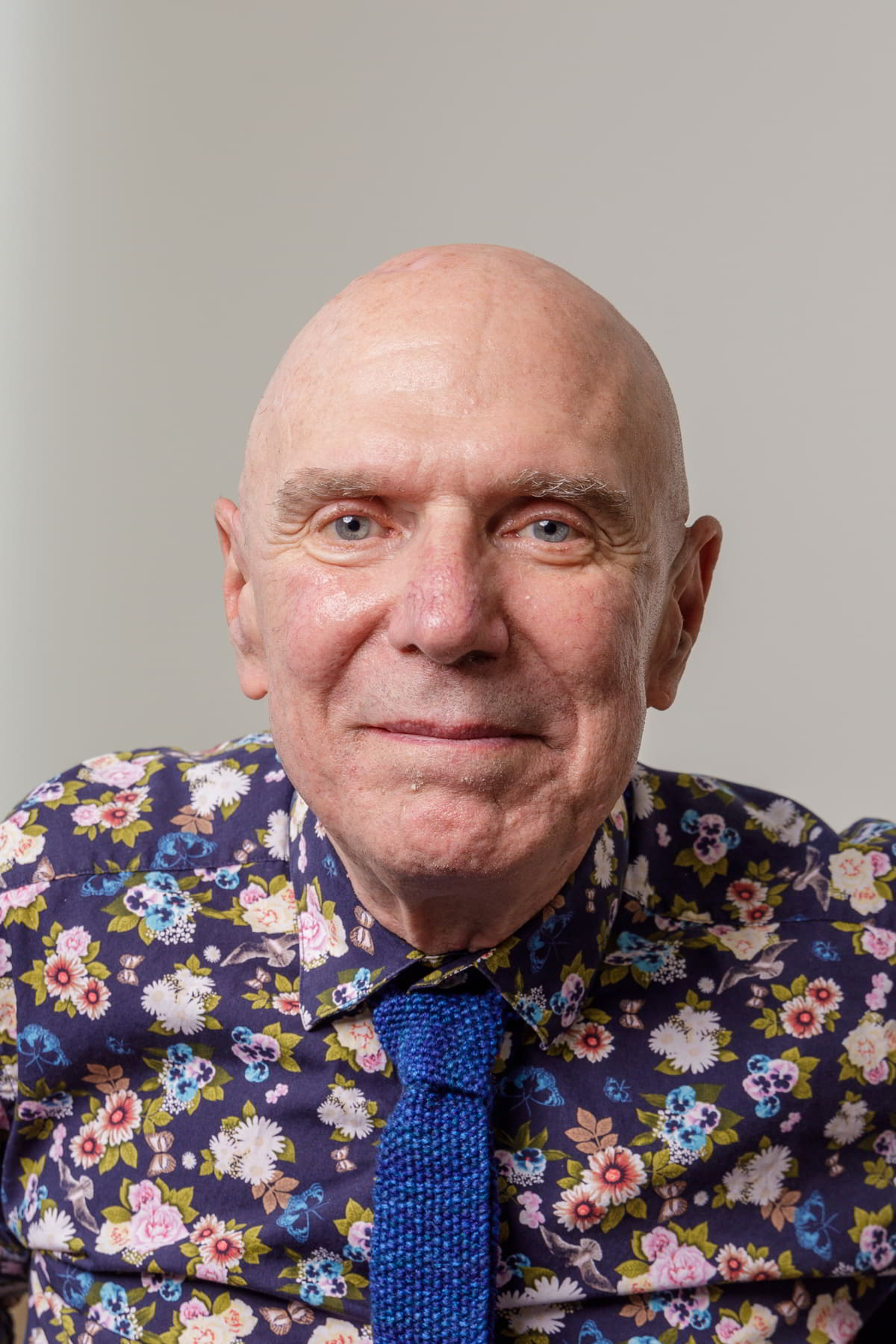Dr. Johnson understands the devastating impact addiction can have, not just on those who struggle with it but on their families and loved ones as well.
With over forty years of experience, he has walked alongside countless individuals
who have hit rock bottom, helping them reclaim their lives.
His approach is deeply personal—shaped by his own experiences growing up in a family affected by addiction, and his decades of work at Harvard Medical School and SUNY Upstate Medical University.
Here, you’ll find a resource dedicated to hope, healing, and practical steps to overcome addiction.
Dr. Johnson’s latest book, The Mass Psychology of Addiction, (available December 16)
provides an accessible and fresh perspective on breaking free from the grip of addiction.
Whether struggling yourself or supporting a loved one, you're in the right place.
Start your journey to recovery with insights from one of the most trusted voices in the field.
Why This Book Matters
Addiction isn’t just about substances — it’s about untreated trauma and intergenerational pain.
This book connects clinical practice, public health, and policy reform in a way few others have.
Real patient stories illustrate how trauma-informed care can transform outcomes.
Bold solutions: proposals for systemic reform, including Alcohol Purchase Licenses and State Addictive Drug Centers.
Pregnant and Struggling with Addiction? Help is Here.
If you or someone you know is pregnant and battling addiction, there is hope. Dr. Johnson’s Neuropsychoanalytic Approach offers a proven, compassionate path to recovery. This method, specifically designed to support pregnant women addicted to opioids, focuses on achieving the most important goal—a healthy baby.
Dr. Johnson’s structured and supportive treatment plan has delivered remarkable results:
High Retention Rate: 84% of women remained committed to the treatment, a significantly higher rate than typically seen in similar programs.
Substance Cessation: Nearly all participants successfully stopped using other drugs during pregnancy, with tobacco often being the last hurdle.
Reduced NAS: Among 25 women in the study, only one baby was born with NAS. Even then, the symptoms were brief, lasting less than a day, and the longest hospital stay for monitoring was just six days, without the need for further treatment.
Dr. Johnson’s approach not only aims to protect the unborn child but also supports the mother in overcoming addiction, offering a brighter future for both.
(NAS, or Neonatal Opioid Abstinence Syndrome, is a heartbreaking condition. Newborns undergo withdrawal symptoms, including high-pitched crying, nasal congestion, hyperreflexia, and gut cramps, leading to dehydration. The detoxification process often involves the use of opioids like methadone and morphine.)
Supporting a Loved One with Autism? You’re Not Alone.
Autism presents unique challenges, often rooted in the way their brains process pain and social interactions. Dr. Johnson’s neuropsychoanalytic approach recognizes these challenges and offers a compassionate, science-backed treatment plan.
Autism's high endogenous tone, between 5 and 6, causes ordinary human contact to be uncomfortable. A question that everyone asks is, “Why is the prevalence of autism going up so sharply, from being a rare disease when first identified by Leo Kanner in the 1940s to one in 44 births in 2021.”
By understanding that high opioid tone may contribute to the discomfort many autistic individuals feel in social situations, Dr. Johnson’s methods focus on balancing these neurochemical systems. His treatment helps reduce the overwhelming pain and anxiety that drive addictive behaviors in autistic individuals, offering them and their families a path to a better quality of life.
Recovery is possible, and it starts with understanding and addressing the unique needs of each individual.
Living with Fibromyalgia? There’s Hope.
Fibromyalgia can feel like an endless cycle of pain, fatigue, and frustration, especially when compounded by addiction. Dr. Johnson’s neuropsychoanalytic approach offers a unique perspective on managing both conditions.
His method targets the root causes of pain and addiction, providing a pathway to relief and recovery.
Through a combination of low-dose naltrexone (LDN) and tailored psychotherapy, Dr. Johnson has helped many patients reduce their pain, increase their energy, and, in some cases, achieve remission from depression. The approach not only addresses the physical symptoms but also helps rebuild the opioid receptor system, offering a sustainable way out of addiction and chronic pain.
You don’t have to suffer alone—there’s a way forward.
Struggling with Addiction or Supporting Someone Who Is? There’s a Path to Recovery.
Addiction can feel like an unbeatable opponent, but Dr. Johnson’s neuropsychoanalytic approach offers a way to break free. Combining the latest neuroscience with psychoanalytic principles, this method doesn’t just treat the symptoms of addiction—it addresses the underlying causes.
Whether you’re battling substance use yourself or helping a loved one through their journey, Dr. Johnson’s approach provides the tools and support needed for lasting change. With a focus on rebalancing the brain’s neurochemical systems and understanding the psychological drivers of addiction, this method offers a comprehensive plan for recovery.
You don’t have to face addiction alone—there’s help available, and it starts here.

Although retired from active practice, Dr. Johnson offers limited private consultations for individuals seeking expert guidance on addiction recovery. Sessions are tailored to your unique needs, drawing on Dr. Johnson’s extensive experience.
Schedule a Consultation today to gain insights that can transform your recovery journey.


With decades of experience in addiction treatment, Dr. Brian Johnson has transitioned from a distinguished clinical practice to focus on education and consultation. His books encapsulate years of research and practice, offering a clear path to understanding and overcoming addiction.
Clinical Professor Emeritus of Psychiatry and Behavioral Sciences Upstate University Hospital
Dr. Johnson founded and led Addiction Psychiatry at SUNY Upstate Medical University for 13 years
Professor of Anesthesiology (Retired)
Director of Addiction Medicine (Retired)
SPECIALTIES
Psychiatry, Addiction Medicine, Psychiatry and Neurology, Addiction Psychiatry
CLINICAL TRIALS
International Naturalistic Cohort Study of ADHD and Substance Use Disorders (INCAS): clinical characteristics, treatment, and outcome
Outcomes of Autism Treatment Using Naltrexone
DISEASES & CONDITIONS TREATED
Alcoholism
Fibromyalgia
Opioid Induced Hyperalgesia
Opioid Use Disorder
Opioid Withdrawal
Prescription Drug Addiction
Tobacco, Benzodiazepine, Cocaine and Amphetamine Use Disorder
https://www.researchgate.net/scientific-contributions/Brian-Johnson-2182801467
Brian Johnson’s research while affiliated with State University of New York Upstate Medical University and other places list a dozen research papers released while affiliated with State University of New York Upstate Medical University
Certified American Board of Psychiatry and Neurology